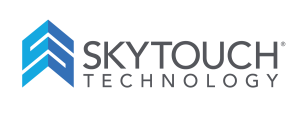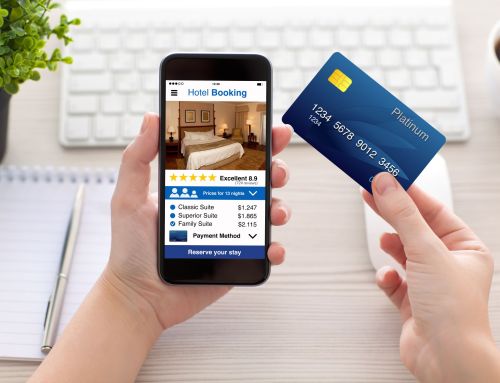In the competitive hotel industry, effectively managing hotel operating costs is crucial for maximizing profitability. Understanding and controlling hotel expenses can significantly enhance a hotel’s bottom line. By implementing proven strategies, hotels can reduce expenses and bolster their revenue streams.
Understanding Hotel Expenses
To boost profitability, hoteliers must have a clear understanding of their hotel expenses and control them effectively. Efficient cost management allows hotels to optimize operations and enhance their bottom line.
Breakdown of Common Hotel Expenses:
Hotel expenses can be broadly categorized into labor costs, operational expenses, and overhead costs. Labor costs include wages, benefits, and training. Operational expenses cover day-to-day costs such as utilities, maintenance, housekeeping supplies, and guest amenities. Overhead costs include rent, insurance, property taxes, and administrative expenses.
Types of Operating Costs in the Hotel Sector:
The hotel sector incurs several operating costs, including food and beverage, marketing and advertising, guest acquisition, and technology expenses. Managing these costs efficiently is essential for maintaining profitability. By implementing cost-saving measures and leveraging technology solutions, hotels can streamline operations and reduce unnecessary expenditures.
Key Performance Indicators for Hotel Expense Management:
Hoteliers can track their expense management efforts through key performance indicators (KPIs). These metrics provide insights into cost control and identify areas for improvement. Common KPIs include labor cost percentage, revenue per available room (RevPAR), total revenue index (TRI), and operating profit margin. Regularly monitoring these KPIs helps hotels identify trends, make data-driven decisions, and implement strategies to optimize cost management and boost profitability.
Reducing Hotel Operating Costs
Controlling hotel costs is crucial for boosting profitability. By implementing effective cost control strategies, hotel owners and managers can optimize expenses and maximize revenue. Methods to reduce hotel operating costs include:
- Streamline Operations: Identify areas where processes can be streamlined and made more efficient. This could involve automating manual tasks, implementing technology solutions, or optimizing workflows.
- Energy Conservation: Implement energy-saving initiatives such as installing energy-efficient lighting, using smart thermostats, and encouraging guests to conserve energy.
- Inventory Management: Develop a robust inventory management system to minimize waste and control inventory levels. Regularly analyze stock levels, track usage patterns, and negotiate favorable pricing with suppliers.
- Supplier Negotiations: Negotiate with suppliers to secure better pricing, discounts, or extended payment terms. Establish strong relationships with trusted suppliers to ensure competitive pricing and reliable service.
Expense Management Strategies
Proactive expense management is another key aspect of controlling hotel costs and improving profitability. The following approaches can make a difference:
- Regular Budget Reviews: Conduct regular reviews of the budget to identify areas where expenses can be reduced or reallocated. Look for cost-saving opportunities without compromising the guest experience.
- Analyze Expense Reports: Regularly analyze expense reports to identify any anomalies or areas of overspending. Implement policies and procedures to prevent unnecessary expenses and ensure compliance.
- Technology Integration: Leverage technology solutions, such as hotel management software, that provide real-time visibility into expenses. This enables proactive decision-making and cost control.
Labor Optimization Strategies
Optimizing labor scheduling and staff training is another essential strategy to control hotel costs. Ways to optimize staffing and training include:
- Staffing Optimization: Carefully analyze guest demand patterns to ensure optimal staffing levels. Avoid overstaffing during low-demand periods and employ flexible scheduling to match staffing with demand.
- Cross-Training: Crosstrain employees to perform multiple tasks, reducing the need for additional staff. This enhances productivity and reduces labor costs.
- Ongoing Training and Development: Invest in staff training and development programs to enhance skills and improve efficiency. Well-trained employees are more capable of delivering exceptional guest experiences.
By implementing these effective hotel cost control strategies, hotel owners and managers can optimize expenses, improve profitability, and provide superior guest experience.
Importance of Technology in Hotel Cost Control
In today’s competitive hospitality industry, effectively managing hotel operating expenses is essential for boosting profitability. Technology plays a crucial role in streamlining hotel operations and reducing unnecessary expenses. By leveraging technology, hoteliers can optimize their cost management strategies and achieve greater financial success.
One of the key benefits of technology in hotel cost control is the automation of processes for efficient expense management. Advanced software solutions allow hotels to automate routine tasks such as inventory management, procurement, and budgeting. This not only saves time and effort but also minimizes the risk of human error, ensuring accurate financial data and reducing wastage.
Technology can also contribute to cost control through the utilization of hotel management software for better group business management. Implementing a comprehensive software solution enables efficient handling of group reservations, room allocations, and billing processes. This improves operational efficiency and enhances customer satisfaction, leading to repeat business and increased revenue.
In conclusion, embracing technology in hotel cost control is crucial for boosting profitability. Automating processes, utilizing hotel management software, and leveraging data analytics help hotels optimize cost management strategies, reduce expenses, and enhance overall financial performance. Implementing a robust technology solution like SkyTouch Technology – which offers a wide range of integrations to support your business – can streamline operations and drive profitability.





